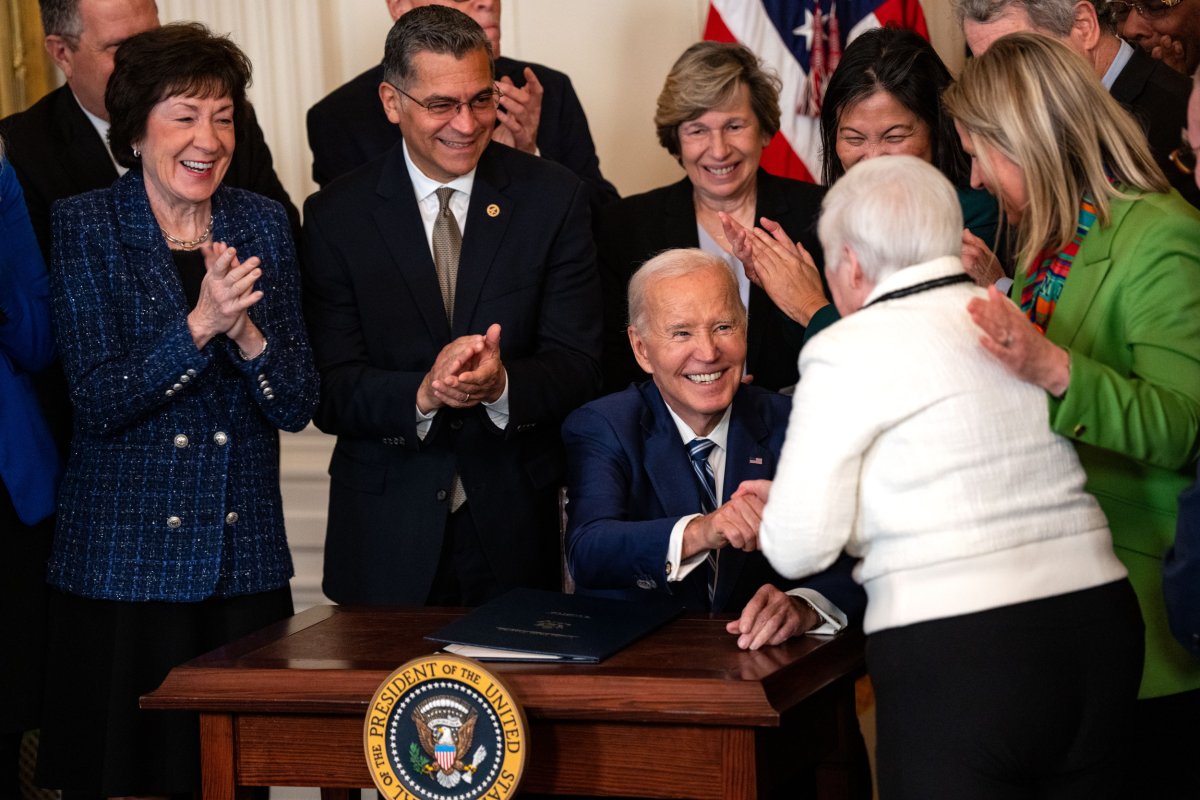President Joe Biden signed the Social Security Fairness Act into law on Sunday, the biggest change to the Social Security Act in decades—and one that's bound to benefit millions of retirees across the nation.
"Americans who have worked hard all their life to make an honest living should be able to retire with economic security and dignity," Biden said during the signing ceremony at the White House.
The measure will give full benefits to millions of public sector retirees who received them at reduced levels due to the Windfall Elimination Provision (WEP) and Government Pension Offset (GPO). These workers and their allies have long been calling for changes to these provisions, which they deemed unfair.
While the Fairness Act sailed through Congress and the Senate over the course of several weeks between November and December, critics have warned about further pressure on the Social Security program and the problem of how to keep it running when it's facing an impending insolvency crisis.
What to Know
Majorities in Congress and the Senate voted in support of the hugely popular bipartisan legislation, which repealed the WEP and GPO, federal provisions reducing Social Security benefits for Americans who also receive a pension for work on which they did not pay Social Security taxes. That includes firefighters, police officers, teachers and other service workers, as well as their surviving spouses and family members.
The Congressional Budget Office has estimated that the new measure will cost nearly $196 billion over a decade—a significant sum, especially considering that, at the moment, the Social Security fund could run out of money in 2038 if no action is taken by lawmakers before then.

What Changes Does the Social Security Fairness Act Bring?
Biden said on Sunday that the measure will mean Social Security benefits will increase by an average of $360 a month for more than 2.8 million recipients.
"That's a big deal in middle-class households like the one I grew up in and many of you did," the president said.
As payments will be retroactive as of January 2024, beneficiaries affected by the new measure will receive thousands of dollars to cover for the past year.
Who Benefits From the New Social Security Act?
In a report published in November, the Congressional Research Service estimated that, as of December 2023, 745,679 Social Security beneficiaries—about 1 percent of all beneficiaries—had their benefits reduced by the GPO. As of the same month, about 2.1 million people, or about 3 percent of all Social Security beneficiaries, were affected by the WEP.
Overall, the Social Security Fairness Act is estimated to benefit over 2.8 million public sector retirees, who will now be allowed to collect full benefits.
When Does the Social Security Fairness Act Come into Effect?
The law has now come into effect, and payments linked to the Social Security Fairness Act will be made retroactive to January 2024.
How Did the Senate Vote on the Measure?
The act got the support of 76 senators—46 Democrats, 27 Republicans and three independents. Twenty senators—all Republicans—voted against the bill, while four—including two Republicans, one Democrat and one independent—did not vote.
What to Do If You Have Previously Filed for Social Security Benefits
According to the Social Security Administration (SSA), if you have previously filed for Social Security benefits you do not need to take any action now except to make sure that the agency has your current mailing address and direct deposit information if your address has recently changed.
Most beneficiaries would be able to verify this information on their personal "my Social Security" account without calling or visiting Social Security. The agency recommends visiting www.ssa.gov/myaccount to sign in or create your account.
What People Are Saying
President Joe Biden said during the signing ceremony at the White House on Sunday: "The bill I'm signing today is about a simple proposition: Americans who have worked hard all their life to earn an honest living should be able to retire with economic security and dignity—that's the entire purpose of the Social Security system. [...] This is a big deal."
National Archive and Retired Federal Employees (NARFE) National President William Shackelford said in a statement on Sunday: "With the repeal of WEP and GPO, federal retirees, along with so many others, will finally receive the full Social Security benefits they've earned. NARFE is proud to have played a part in achieving this monumental victory, and we remain committed to ensuring that public service is met with the respect and fairness it deserves."
Republican Senator Susan Collins of Maine wrote on X on Sunday: "I have fought for this change since 2003, when I held the first-ever Senate hearing on repealing the WEP and GPO, and I am proud that this law will ensure public service no longer comes at the expense of the retirement benefits earned by an individual or their spouse. This is a win for fairness and for those who have dedicated their lives to serving their communities."
What's Next
The SSA is expected to publish more details on how it plans to implement the law soon. You can keep an eye out for any update here.





.png)














 English (US) ·
English (US) ·